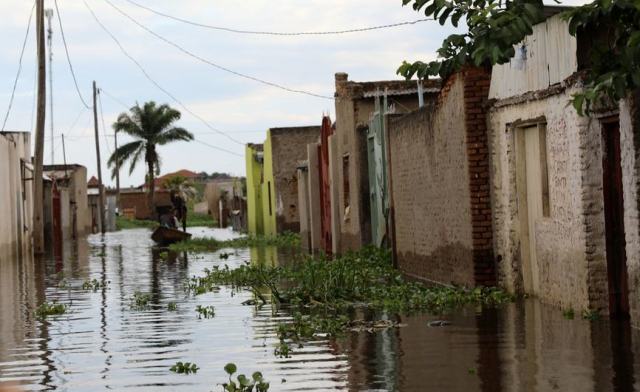UN humanitarian agencies highlighted the catastrophic impact of unprecedented flooding across East Africa, leading to widespread displacement in countries including Burundi, Kenya, Rwanda, Somalia, Ethiopia, and Tanzania.
The International Organization for Migration (IOM) sounded the alarm, citing torrential rains that have triggered devastating flooding and mudslides, causing extensive damage to infrastructure such as roads, bridges, and dams.
According to the IOM, more than 637,000 people have been affected by the deluges, with a staggering 234,000 individuals forced from their homes in just the last five days. While an official death toll has yet to be confirmed, the scale of the disaster is staggering.
“The numbers of displaced people keep rising,” remarked a spokesperson for the UN agency, emphasizing that the flooding crisis underscores the harsh realities of climate change, which continue to exact a heavy toll on lives and communities.
Rana Jaber, IOM’s regional director, emphasized the urgent need for sustainable efforts to address the increasing vulnerability of populations to climate-induced disasters. As affected individuals grapple with the daunting task of rebuilding their lives, the risks posed by their heightened vulnerability cannot be overstated.
Africa, despite contributing only a small fraction to global greenhouse gas emissions, remains highly susceptible to the impacts of climate change. The eastern and Horn of Africa regions, in particular, have borne the brunt of alternating cycles of drought and intense precipitation over the past decade, exacerbating the humanitarian crisis.
Amidst the worst flooding in decades, IOM, in collaboration with governments and partners, is working tirelessly to provide lifesaving assistance to affected populations. In Burundi, emergency relief efforts have included the distribution of shelter materials, blankets, cooking utensils, and other essential items to over 5,000 people, alongside support for relocating those at risk to safer areas.
Similar assistance is being extended to flood-affected communities in Ethiopia, Kenya, and Somalia, where tens of thousands of individuals are in urgent need of aid, including shelter materials, hygiene kits, medical care, and psychosocial support.
With the urgency of the climate crisis increasingly apparent, IOM emphasized the imperative of including considerations of human mobility and displacement in global discussions on climate change. East African leaders have already pledged their commitment to addressing the challenges posed by climate-induced migration, but concerted efforts are needed to translate these commitments into tangible action.
As the world gears up for crucial climate talks in Germany in June and the upcoming UN Climate Change Conference (COP29) in November 2024, the plight of those affected by the flooding in East Africa serves as a stark reminder of the urgent need for coordinated international efforts to mitigate the impacts of climate change and support vulnerable communities.

